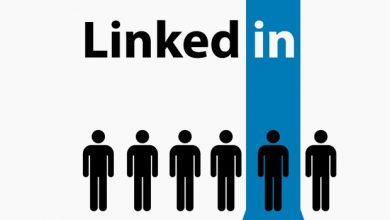Abandoning Social Networks Improves Mental Health

Abandoning Social Media for just one week can positively affect people’s mental health and mental peace. It seems that a range of content published on social networks is stressful.
Abandoning Social Media Improves Mental Health
Do you feel anxious and depressed while using social networks? If your answer to this question is positive, we must say that you are not alone. Contradictory opinions are always raised about social networks. In this article, we will be more specific about four general statements about social networks:
- Following negative news on social networks causes anxiety and depression in people.
- The corona epidemic has intensified these feelings in many people.
- Researchers say that staying away from social networks can reduce the intensity of negative emotions.
- Research results indicate that staying away from social networks for a week changes people’s moods.
How accurate are the above claims? In fact, according to experts, people may easily fall into a type of destructive behaviour pattern in the form of monitoring negative news or obsessively following bad news on websites and social networks. Especially when social network algorithms seek to provide content similar to the content that users interact with. They are more inclined.
However, researchers at the University of Bath in England believe that one of the best ways to get rid of an unfavourable mental state and take care of mental health is not to use social networks for a certain period of time. They say that staying away from social networks such as Facebook, Twitter, and Instagram for a week can relieve symptoms of distress and boost feelings of well-being. Also, this work makes the time allocated for browsing social networks to be used for useful activities. In fact, some of the participants in this new study stated that they had up to 9 hours more free time after giving up social media for a week.
Staying away from social networks improves mental health
Dr Jeff Lambert and his research team randomly divided 154 participants into two groups in order to study the effect of staying away from social networks on mental health. These people, who were between 18 and 72 years old, used social networks on a daily basis. The people of the first group were asked to refrain from using social networks for a week, but the people of the second group were allowed to use these networks as before.
At the beginning of the work, the researchers used a number of basic scores to describe depression, anxiety, and feeling of well-being in the participants in order to have a measure for measuring people’s mental health. Before the start of the study, the participants spent an average of eight hours a week browsing social networks. During the study, the researchers collected statistical data on the extent of their use of digital devices to ensure that the people of the first group avoid using social networks. They found that the members of the first group spent an average of only 21 minutes on social networks in a whole week, while this number was an average of seven hours per week for the second group members.
After one week, anxiety and depression symptoms improved significantly in people who stopped using social networks. Also, these people reported that they generally felt happier and healthier during this period.
Lambert’s research team wrote in their study report that more research is needed in the future to examine the durability of the positive effects of staying away from social networks. Future research results may introduce new solutions for managing people’s mental health.
The findings of this research are of particular importance due to the emergence of the epidemic.
Dr Tonya Cross Hensel, director of the Doctor of Social Work (DSW) program at Tulane University’s School of Social Services, explains that the results of this study are especially important given the experience of the pandemic. He says:
“People’s mental health and sense of well-being have decreased in recent years. People with a history of mental disorders, bereaved people who have lost their loved ones, and the health system workforce are at greater risk.”
During the pandemic, social networks played a positive role in many people’s lives by providing a platform for communication between people and helping them to do self-care tasks. But Hensel says social media has also exacerbated some of the negative aspects. He speaks about this:
“For example, we are all familiar with the problem of fake digital identity. Continuous comparison with unrealistic images of other people’s lives causes people to feel sad.”
Hensel also believes that violence in the environment of social networks (in the form of bullying, threats, etc.) and excessive use of these networks can lead to damage to people’s mental health.
Solutions for having a successful period away from social networks
Hensel says that if you feel that social networks are not helpful for you or that your mood worsens after using them, it is better to think about starting a period of avoiding using them. He says:
“Similarly, if you don’t feel happy, relaxed, or happy after using social media, you should look for other ways to invest your time.”
Hensel also points out that sleep disturbances can signify that it’s time to give up social media, especially if you have a habit of using it before bed. Alison Hellman, a professor at the University of California School of Nursing, suggests that it is better to pay attention to the physical symptoms of the body in order to investigate the effect of using social networks.
He explains that you should put the phone away if you feel tension, pain, or difficulty breathing deeply. Instead of using social media, do activities that make you feel good, like listening to your favourite song or playing with your pets, says Hellman.
When it comes to setting up a long-term plan to manage negative emotions from social media use, Hensel says the first step is to figure out how long it’s okay for each person to use these tools. He adds:
“You have to ask yourself, what is the pleasure of using them for you, and what do you lose by doing this?”
Once you’ve answered these questions, set a time limit for using social media using a timer or some other expression. According to Hensel, you should look for an alternative to social networks after doing this. For example, you can follow the news from other sources. If you use social networks to communicate with others, you can contact your friends and family and inquire about their status during this period. If you’ve been using social media for self-care, you can look for alternatives, such as exercising or finding a new hobby.
Hansel says at the end:
“It would help if you thought about starting the period of avoiding social networks. Sometimes completely avoiding them is the best way to find out how using these expressions creates a pleasurable experience and affects your mental health.”






